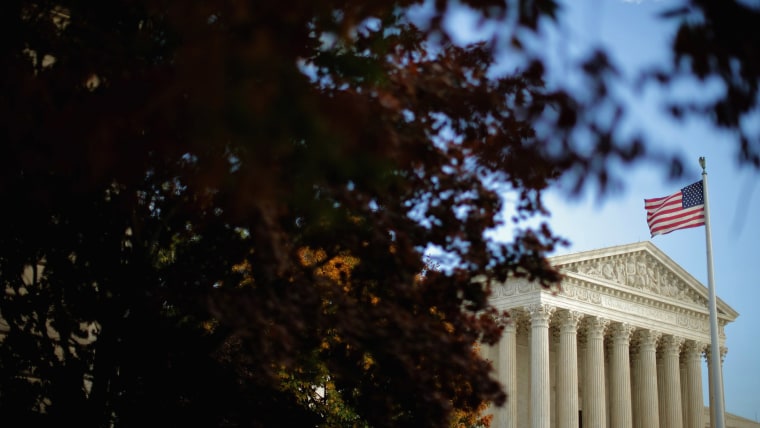The Washington Post reported over the weekend on the behind-the-scenes process Donald Trump and his team are utilizing ahead of next week's Supreme Court nomination announcement. It noted, for example, that Trump "wants to see a portfolio of solid academic writing, though this adviser acknowledged that Trump does not care to read it; he simply wants to know it exists."
This president just isn't much of a reader.
But the fact that he's asking anything from White House officials is itself a departure of sorts.
In most other realms, Trump is quick to reject norms and resist the established order. Where previous presidents zigged, the 45th almost always wants to zag. But not when it comes to the Supreme Court.So far, at least, Trump is taking direction from his counselors, including two with deep roots in Washington's conservative network: [White House counsel Donald McGahn] and Leonard Leo, who is on leave from the Federalist Society to informally advise on judicial nominations.
Trump wants to be his own speechwriter. And his own chief of staff. And his own communications director. But when it comes to moving American jurisprudence sharply to the right for a generation, the president seems to understand that his usual posture -- post-policy carelessness and shoot-from-the-hip recklessness -- won't do.
And wouldn't you know it, as Trump outsources the heavy-lifting to others, the beneficiaries of his decision are delighted.
Leonard Leo, for example, praised Trump for doing "something entrepreneurial," adding, "I have been really impressed with how he conducted this process."
Well, yes, I imagine Leo is quite impressed, indeed. Trump went to far-right interest groups, including Leo's Federalist Society, and effectively said, "Put together a short list for me." They obliged, at which point Trump -- unlike any other president or presidential candidate in American history -- went to the public and assured voters his choice would come from a predetermined list.
The only ones who should be impressed with this process are those who are helping run it.
